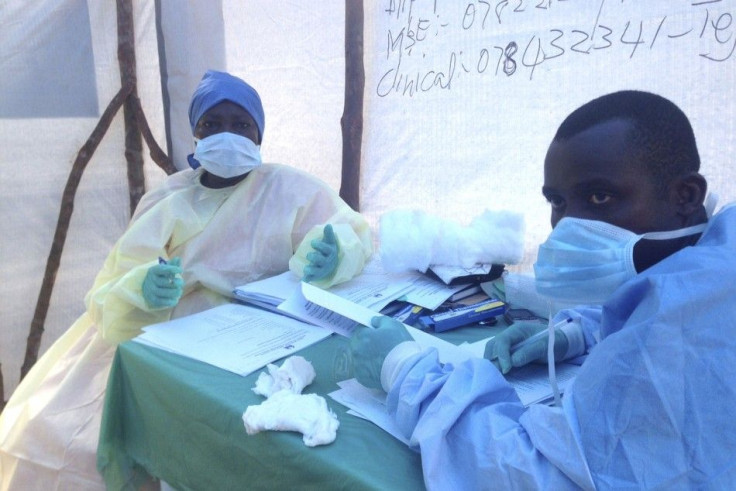Ebola Outbreak Blamed on Infected Bushmeat; First Family to Catch Virus Hunted Bats

The current Ebola outbreak raging in West Africa may have originated in bushmeat. BBC reports that the first family that was infected by the virus was fond of hunting bats which are known to be carriers of Ebola. Reports have surfaced that the popular bushmeat in Africa may have caused the outbreak.
Previous reports have indicated that a two-year-old toddler was the first one to have contracted the virus from the Gueckedou village in southeastern Guinea. The area is a hunting ground for bats where they are frequently eaten.
The child, who was called Child Zero, died from Ebola on Dec. 6, 2013. According to the child's family, they had been hunting two species of bat known to carry the virus. Bushmeat is frequently eaten in Africa and are mostly from gorillas, chimpanzees, monkeys, rats, snakes, porcupines and fruit bats. Reports said some areas view bushmeat as an important source of food, while others enjoy it as a delicacy.
The Centre of International Forestry Research said the people in Africa's Congo Basin consume an estimated 5 million tonnes of bushmeat every year. Studies have revealed although some animals can harbour diseases, some fruit bat species can potentially carry Ebola. Contact with the carrier bats' droppings or fruit they have touched can spread the infection even to other animals. Bats are not affected by the virus which makes them ideal carriers of Ebola.
However, it remains unclear how bats can be directly affected by Ebola, said University of Nottingham professor and virologist Jonathan Ball. He told BBC that there has always been other species involved but the current outbreak seems to point to direct contact with infected bats.
Ball explained that the virus needs to gain access to cells to which it can "replicate" through contact with infected blood. Most people in Africa buy bushmeat in the market after it has been cooked, so the high risk of infection rests on the hunters or cooks of raw meat.
Experts have previously warned that banning bushmeat suspected of carrying Ebola may only drive the product underground. Dr Marcus Rowcliffe from the Zoological Society of London said hunting bushmeat has become a tradition in Africa. While studies show there is a risk of contracting the virus from bats, it appears to be low. In Ghana, more than 100,000 were consumed, but no single case was reported.
Researchers continue to monitor the bat population and test them for Ebola. Health experts said it was not surprising to cite bushmeat as a possible cause of the current outbreak. Scientists are advocating for the education of bushmeat hunders to possible risks due to their traditional practices.




















